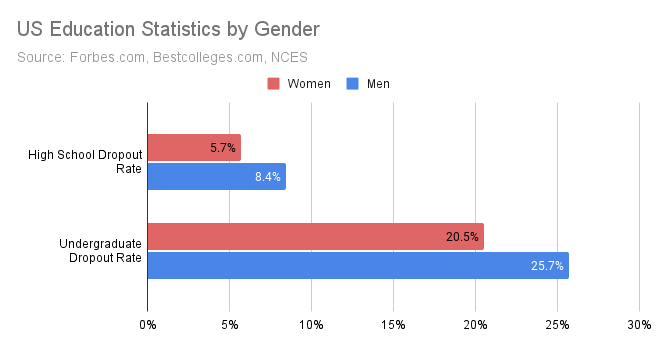You Probably Didn't Realize Today is International Men's Day
Every March, when International Women’s Day rolls around, you probably notice a flurry of Instagram posts, the recognition of incredible women on the radio or TV, and maybe even a parade or event near you depending on where you live. The day meant to highlight the particular challenges that women face, and the paths forward to overcoming them, is more or less meeting the need.
The more recently established tradition of International Men’s Day, on the other hand, goes relatively uncelebrated by comparison. The day doesn’t (and shouldn’t) exist purely as a counterpart to International Women’s Day, but rather to give an opportunity to talk about some of the issues that men face, including depression, loneliness, and even physical abuse. This year, the theme is “Positive Male Role Models,” with the intention of holding up the best among us as examples.
Coincidentally, this year saw men in the United States voting for Donald Trump at even higher rates than previous election cycles. Is it because Trump, a thrice-married serial sexual predator who was found guilty on 34 counts of fraud and tried to overturn the results of a presidential election through a violent coup attempt, is the teeming vision of manhood at its best? I don’t think so.

Image Credit: Jacob Shropshire
But I do think men are facing some unique challenges right now, and I think Trump, and conservatives around the world for that matter, are doing a better job of providing solutions to those challenges (or, at least, what they consider to be solutions).
First off, it’s worth acknowledging that men are facing men-specific problems. For example, Men die of COVID at up to 20% higher rates than women, a fact which researchers attribute to social factors rather than biological ones. Boys are more likely than girls to drop out of high school, and men are more likely than women to drop out of college — that is, if men go to college at all, considering they make up only 42% of the students enrolled in higher learning institutions in the U.S. Most disturbingly, men globally are more than three times more likely than women to die a death of despair, such as through substance abuse or suicide. Social scientists and healthcare professionals are doing good work to explain this phenomenon, but in general they agree on a simple fact: boys and men are not doing okay.
A common explanation given for this is that men’s sense of meaning and identity has traditionally been wrapped up in work and careers, and more broadly, providing for one’s family. “One of the big insights of the women’s movement was that women’s identity was too narrowly confined to that of wife and mother,” said Richard Reeves, the head of the American Institute for Boys and Men. “For men, though, it’s still more narrowly defined around work and career. But if more of our identity could rest on our role, say, as a father, then that would help to counterbalance difficulties we might be having in the workplace.”

Image Credit: Jacob Shropshire
The challenge is that men aren’t finding purpose in things outside of work, and when it comes to the political fallout of that, the instincts of some towards a regressive kind of gender politics is particularly problematic. If the fundamental feeling is that a man’s sense of self is tied to what they are able to bring home for their family at the end of every day, the perception of a bad economy reflects poorly on that man’s self-worth. Trump, with all of his flaws, came to men blaming progressives (and women) for these problems, and for broader economic challenges, framing himself as a symbol of machismo masculinity that some men are seeking as a result.
Democrats, on the other hand, have been criminally negligent in addressing the issue. A DNC webpage titled “Who We Serve,” for example, lists sixteen constituencies, including the LGBTQ+ community, Native Americans, and women. Men are nowhere to be found.
This gap on the DNC website, and in the platform of left-leaning parties around the world, is disappointing, and there are ways to talk about men’s issues without sacrificing the women’s issues that activists have fought hard for. There’s a concise and clear way to talk about masculinity from the left, and it’s time we start telling it.
First, we have to stop describing masculinity by what it is not. Terms like “toxic masculinity” don’t help anyone to understand what positive masculinity looks like, and for ordinary Joes, it’s not productive to tell someone that their feelings and actions are wrong because of how they’ve been programmed. Toxic masculinity is not a form of masculinity at all. Our definition for masculinity ought to include the things that men are actually built for, and use the strength that men grow into not as a resource to tear others down, but to build them up. Real men don’t dominate their spouse by expecting things from them, they support their spouse by doing the things that matter. Real men don’t lie to avoid calls for help, they are the first to arrive. Real men don’t start fights in bars, they break them up.

Members of the Alpha Tau Omega fraternity participate in a trash pick up event. (Image Credit: The Alpha Tau Omega Fraternity at Colorado School of Mines)
Second, men must do better to hold up positive visions of masculinity, and call other men out when they don’t meet the standard. Male-dominated spaces must be full of people who are willing to speak up, and importantly, rather than tearing other men down, pointing out the mistakes of others can be a mutual invitation to get better and hold each other accountable. The strength that men have to support and uplift women in their fight for better conditions can also be applied to support and uplift men who might have stumbled in their hunt for manhood.
A vision forward shouldn’t be focused on prioritizing men’s needs over women’s needs, but it can acknowledge the particular issues facing men. And critically, it must include a path for men to use their own strengths and talents and interests to improve the situation for themselves, as women have done by, say, organizing media efforts and event coordination for International Women’s Day each year. Men have these opportunities too, they just have to take them, and we should all be willing to help.





